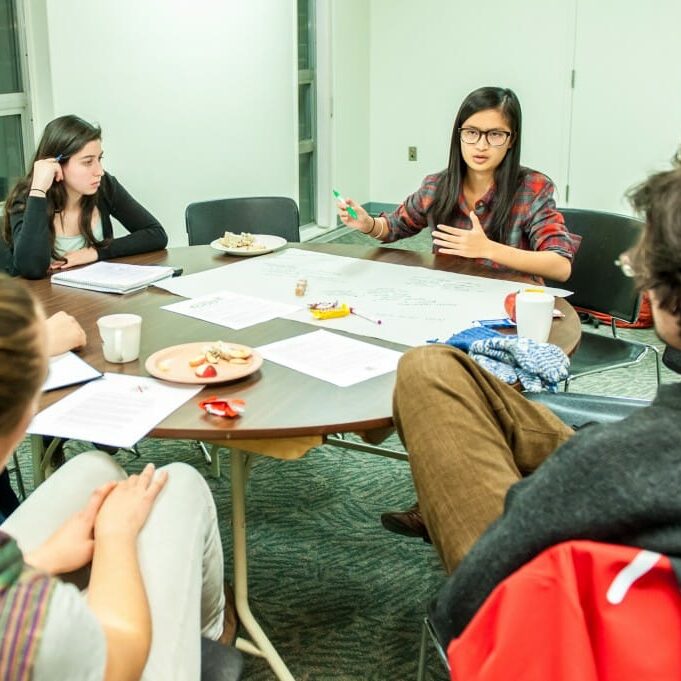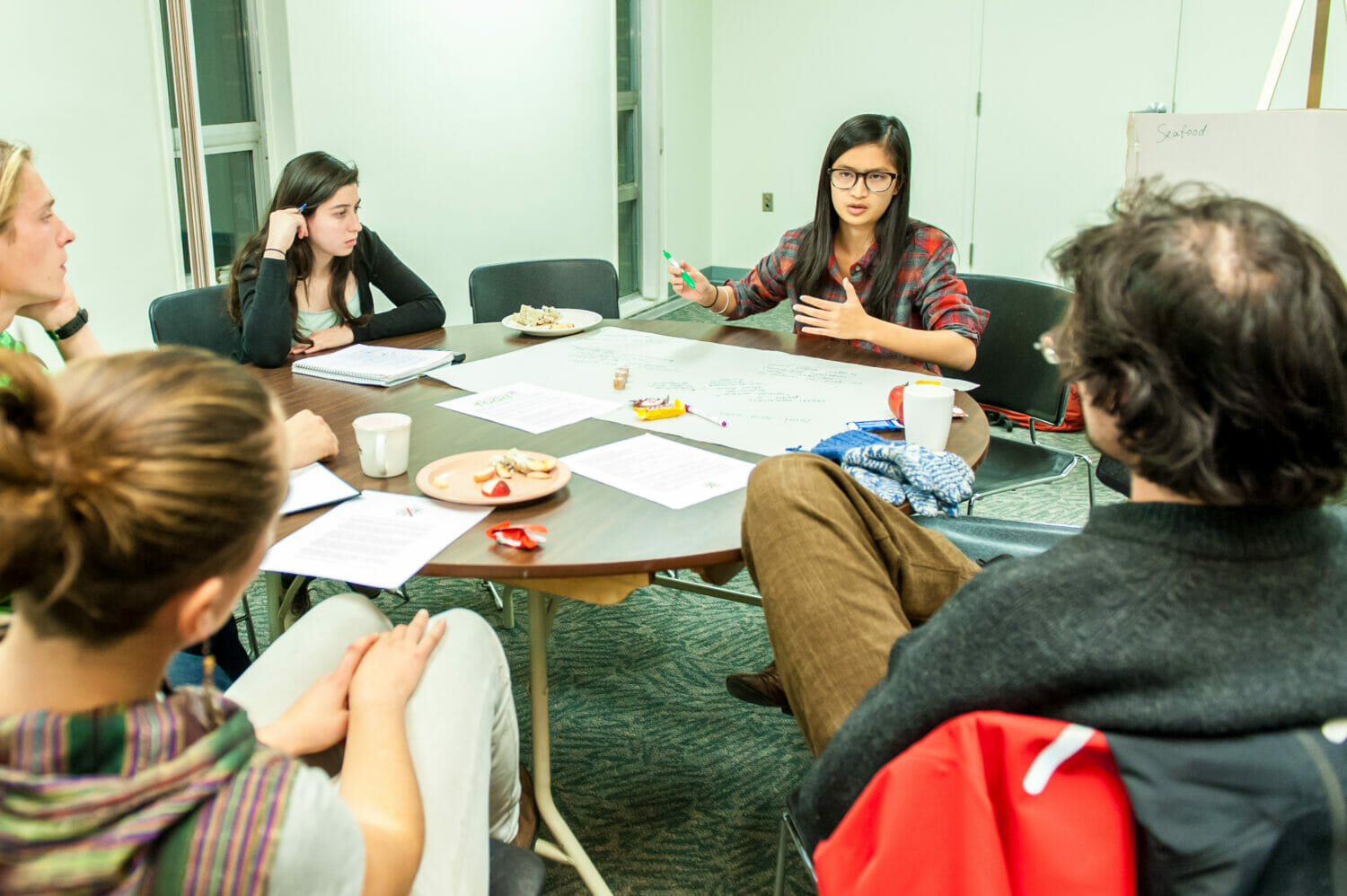
The Campus Food Strategy Group (CFSG) hosted its first meeting to begin its year-long goal to create a Dalhousie food charter.
Fewer than 10 students attended the café-styled meeting held Oct. 30 at the Student Union Building. Included were snacks, Sharpies and large sheets of paper to get ideas flowing.
The food charter would be based on student input generated through public meetings on campus, as well as surveys and meetings with other food-concerned student associations. The idea comes from the National Student Food Charter, which collected input from over 400 Canadian post-secondary school students as a tool for them to change the food at their own schools.
“If it’s just me knocking on the door being like, ‘This is my job and I want local food,’ they (food providers) are like, ‘Okay, well, you want local food? The other student wants cheap food,’ ” says CFSG coordinator Samantha Luc. “And so I think it’s important to have a statement of collective values of students that are interested in being able to eat well on campus.”
Chartwells provides food for Aramark, which hires the kitchen staff in Dal’s residential cafeterias and the Killam, to name a few. With Chartwells’ national connections, Dal saves money on food costs.
First-year student Owen Brush wants to see Dal involved in the management, putting the Dalhousie Student Union (DSU) in control. Luc agrees in having Dalhousie involved, but thinks it would be too much for students to completely run the food services. She’d prefer that Dal pick the kitchen staff and providers on their own, rather than contracting the work out to Chartwells. She cites the Vancouver Island School, which allows its culinary school to provide the campus food supply.
Brush would also want to know how other foods are treated for other Aramark clients. “If Aramark will provide this utopian food at university, but continues to do the same at prisons or hospitals, has anything changed?”
The proposals between Dal and its food providers don’t contain student input, and third-year student Aaron Levitt questioned how the providers would react to student movements, such as ones for organic food. The responding proposals from food providers to Dalhousie’s requests are around 400 pages long and not publicly available for proprietary reasons.
“The stuff I want to know isn’t necessarily what I get to see,” says Levitt. He’d like to see CFSG condense these documents if they are ever made available.
“It’s really not transparent,” says Luc. “It’s hard because we’re sitting here and we want to change things, but sometimes we don’t even know.”
Other participants at the consultation discussed issues regarding seafood and fair-trade in Nova Scotia. The participants were highly educated about food issues, occasionally discussing broader topics rather than just the Dalhousie specifics.
Luc hopes the Dalhousie food charter will be done by April. She wants to present it to the DSU to have councillors vote on adopting it either in part or in its entirety. She would also like to present it to the President’s Advisory Council on Sustainability.







